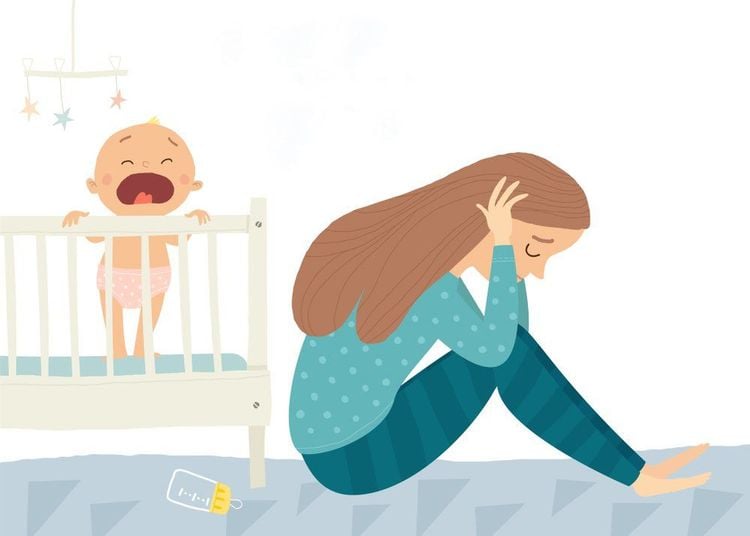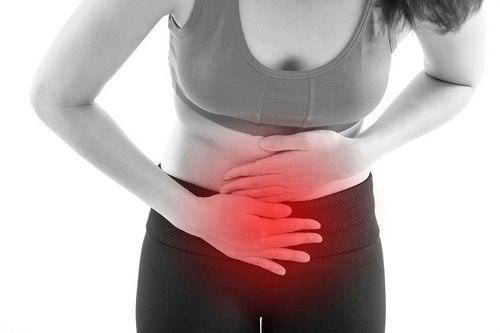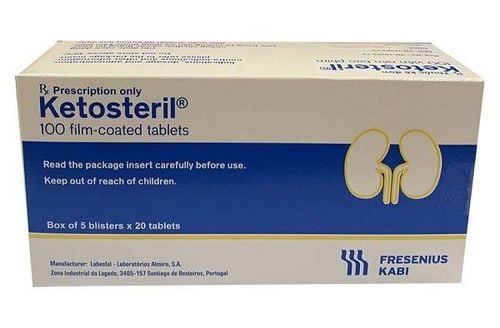This article was professionally consulted by Ta Quoc Ban M.D, M.S - Obstetrician and Gynecologist - Department of Obstetrics and Gynecology - Vinmec Phu Quoc International General Hospital
Postpartum hormonal changes occur immediately after the baby is born at a rate as fast as when pregnancy begins. Hormone levels in a woman's body undergo significant changes in the first few hours to many days after childbirth.
1. Overview of postpartum hormonal disorders
In most cases, when a rapid pregnancy test gives a positive result with two dark lines, the woman's hormone levels have begun to change. Progesterone and hCG begin to send signal and cause an anovulatory response for the next menstrual cycle. As many people know, when these two hormones begin to appear and increase in blood, the body will have symptoms indicating a major change in the first few months of pregnancy such as nausea, fatigue, and breast tenderness.
During pregnancy, the body produces large amounts of estrogen and progesterone. These two steroid hormones are key to producing dopamine and serotonin, two neurotransmitters in the brain that help women feel happy and relaxed. This explains the wonderful feeling that women get when they find out they are pregnant.
However, what happens to these hormones after the baby is born? Unfortunately, immediately after childbirth and for many weeks thereafter, estrogen and progesterone levels will drop dramatically. In addition, prolactin and oxytocin levels will increase rapidly in the postpartum period.
This significant postpartum hormonal disorder is believed to be the cause of changes in a woman's psychology and emotions. Therefore, it is necessary to take a closer look at the knowledge related to postpartum hormonal changes to know that the mood swings experienced by young mothers are very normal problems.
2. How do hormones change in the first few days after childbirth?
The moment a baby is born is always the most memorable milestone for women. How long the labor process takes is not really important and it does not affect the feeling of happiness when seeing the baby for the first time. However, postpartum hormonal changes will immediately occur in the following days. The characteristics of postpartum hormonal disorders in the first few days include:
- A rapid decrease in progesterone and estrogen levels immediately after the baby is born and the placenta is removed.
- A peak in oxytocin occurs immediately after birth to compensate for the decrease in estrogen and progesterone levels. The hormone is related to the emotions and maternal instincts of women.
- Prolactin increases rapidly to stimulate milk production.
3. Hormones in the 3rd to 6th week postpartum
After the first few weeks, women may begin to feel that their emotions are gradually stabilizing. Mothers gradually get used to taking care of their babies and no longer complain about insomnia. Many experts believe that the first three months postpartum is a period characterized by sleeplessness and mood swings due to the body's secretion of a lot of adrenaline.
Around 6 weeks postpartum, symptoms of postpartum depression may begin to appear due to changes in hormone levels. Changes that women may experience include not wanting to bathe or focus on hygiene, being afraid to leave the baby with others, being unable to get enough sleep due to constantly caring for the baby, and lacking appetite, and not wanting to leave the house and interact with others.

4. Hormones at 3 months postpartum
In the 3-month postpartum period, mothers have gradually formed new habits in their daily lives to care for the baby. However, hormone levels at this time have not yet returned to normal as before birth. Between 2 and 3 months postpartum, hormone levels gradually begin to return to levels similar to those before pregnancy. However, cortisol levels continue to increase due to the many stresses experienced during childcare. Lack of sleep or poor sleep reduces melatonin and serotonin levels. These postpartum hormonal changes can have a negative impact on a woman's psychology.
5. Hormone levels at 6 months postpartum
The biggest postpartum hormonal disorder observed at this time is the decrease in prolactin or milk-producing hormone levels. This hormone needs to be constantly secreted during breastfeeding, but when the baby starts eating solid foods, its level will decrease. Even when continuing to breastfeed after 6 months, the baby's milk demand may still be well regulated at this time and milk is no longer produced as much as before.
If breastfeeding exclusively, the postpartum hormonal changes of these women may be slightly different from those of formula-feeding women at 6 months postpartum. According to Susan Loeb-Zeitlin, M.D., an obstetrician at Weill Cornell Medicine and New York-Presbyterian Hospital, "For breastfeeding women, hormone levels are suppressed for longer (the more you breastfeed, the longer the suppression).
6. When will hormone levels return to normal?
Typically, a woman's hormone levels will return to normal around 6 months postpartum. This period usually coincides with the first menstrual cycle after childbirth. Estrogen and progesterone levels at 6 months postpartum will return to normal levels as before pregnancy. And they will continue to change cyclically and women will start to menstruate again.

7. Signs of hormonal imbalance
Sometimes, pregnancy and childbirth can cause major hormonal changes. In these cases, women need intervention to regain balance. Some signs that can help identify a hormonal imbalance after childbirth include:
- Fatigue and depression
- Decreased libido
- Weight gain
One of the most common postpartum hormonal disorders occurs in the thyroid gland, accounting for about 10% of cases. These problems often resolve on their own over time, however, in some cases, doctors will prescribe medication to help regulate hormones.
If hormonal imbalances occur before pregnancy, they can also occur after pregnancy with a fairly high rate. Causes of hormonal imbalances such as polycystic ovary syndrome should be treated before deciding to become pregnant.
To arrange an appointment, please call … or make your reservation directly HERE. You may also download the MyVinmec app to schedule appointments faster and manage your reservations more conveniently.
References: parents.com














